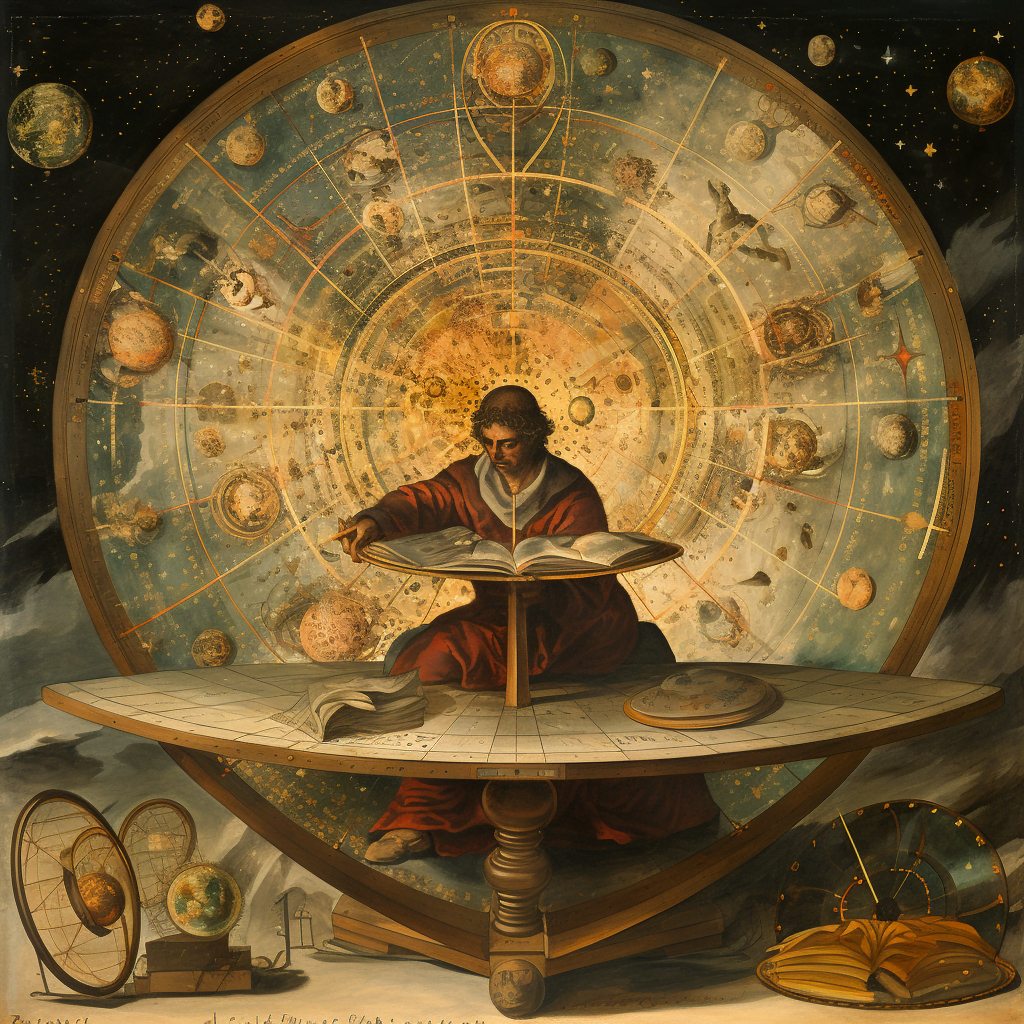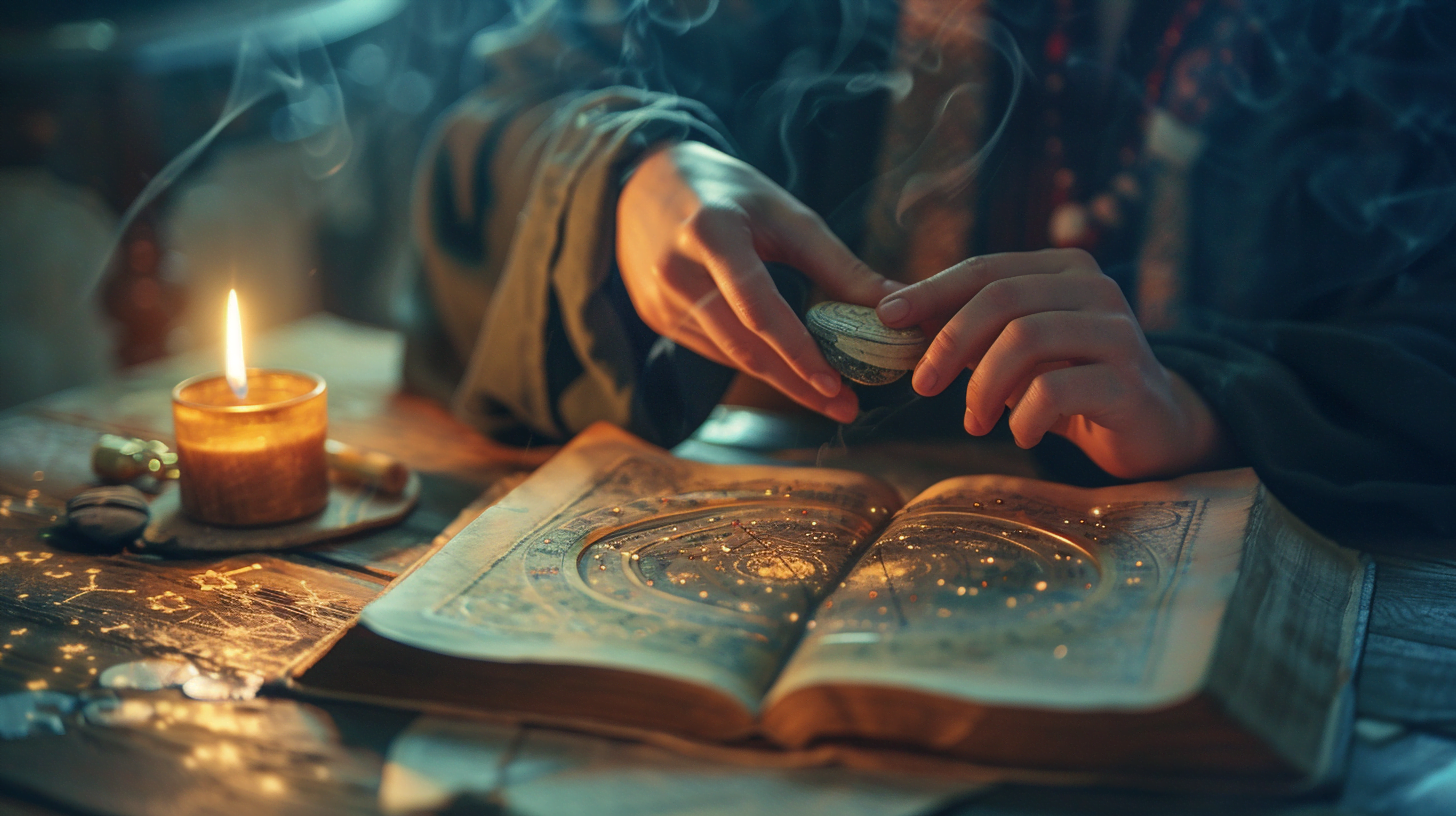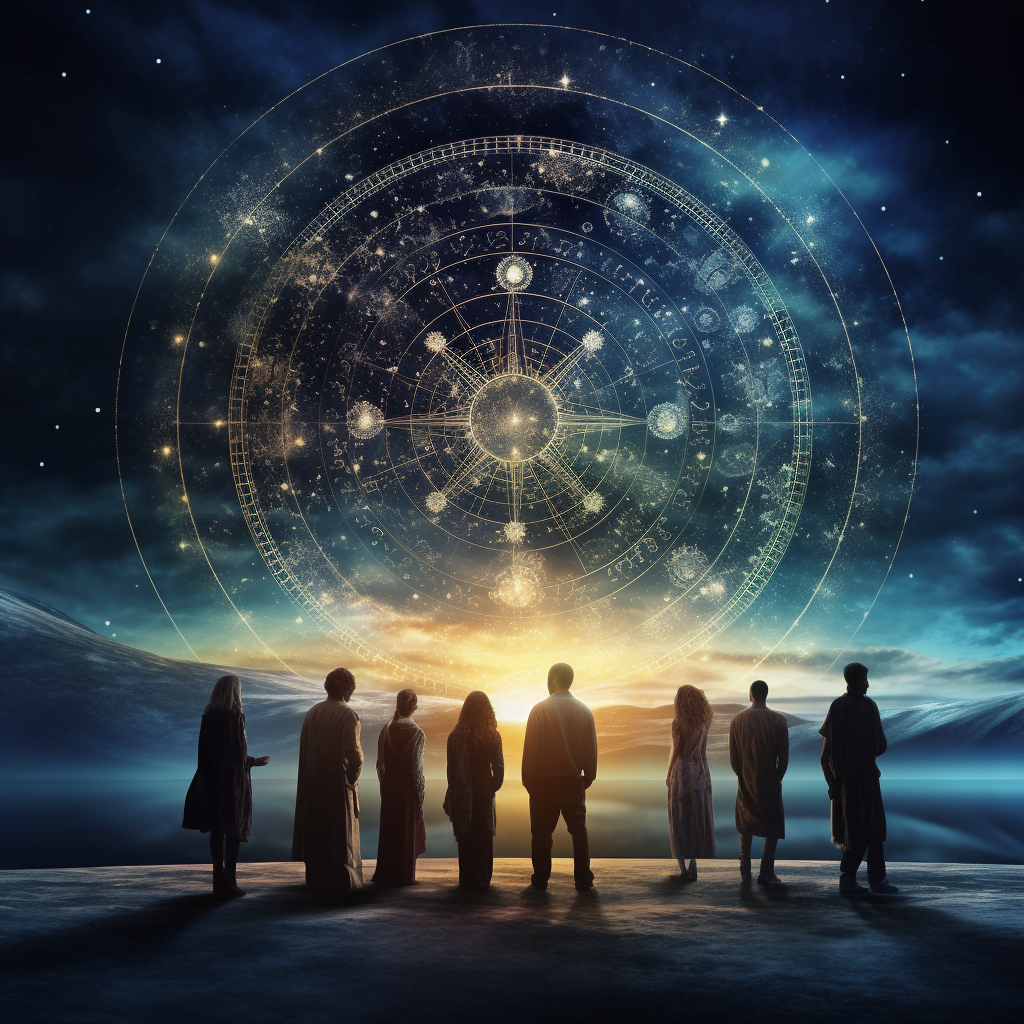Astrology, an ancient practice that seeks to understand human behavior through the study of celestial bodies, has long been intertwined with religious beliefs. The inextricable link between astrology and religion can be traced back to the origins of astrology itself, where early civilizations looked to the stars to explain the mysteries of their existence. By exploring the historical connection between astrology and various religious traditions, this article seeks to shed light on the profound impact that astrology has had on shaping religious beliefs and practices throughout human history.
Astrology in Ancient Mesopotamia
Early Observations of the Skies
In ancient Mesopotamia, the civilization of the Sumerians and later the Babylonians, astrology played a significant role in religious practices and societal beliefs. The inhabitants of this region closely observed the skies, recognizing patterns and celestial movements. They meticulously recorded these observations and began to decipher their meanings. This early astral exploration laid the foundation for the development of astrology as a spiritual practice.
The Influence of the Gods
The ancient Mesopotamians firmly believed that the celestial bodies were closely tied to gods and their divine influence on human life. They believed that each planet, star, and constellation represented a specific god or goddess, making astrology an essential part of their religious beliefs. For example, the planet Venus was associated with the goddess Inanna, signifying love, beauty, and fertility. The alignment and interactions between these celestial entities were considered messages from the gods, offering insight into the human condition.
Celestial Divination and Astrology
Mesopotamian astrology heavily relied on the concept of celestial divination, which involved interpreting the movements and positions of celestial bodies to predict future events. The astrologers of ancient Mesopotamia would carefully observe the celestial phenomena and correlate them with earthly matters. They believed that these celestial messages could help in making important decisions, foreseeing significant events, and even understanding the will of the gods. Astrology became entwined with various aspects of Mesopotamian society, from ruling dynasties to agricultural practices.
Astrology in Ancient Egypt
Astrology in Ancient Egyptian Religion
In ancient Egypt, astrology held a prominent place within the overarching belief system of their religion. Egyptians believed that the cosmos was interconnected, where the gods in the celestial realm governed the lives of humans on Earth. Astrology was seen as a vital tool for understanding the intentions of the gods and navigating human destiny. The Egyptians observed celestial phenomena such as solstices, planetary movements, and star alignments, attributing them to messages from the gods.
Neteru, the Gods of the Skies
The ancient Egyptians associated various deities known as Neteru with celestial entities. Each god ruled over a particular aspect of human existence and possessed the power to influence events on Earth. For example, Ra, the Sun god, was believed to bring light, warmth, and life to the world. Egyptian astrologers studied the movements and positions of these celestial bodies to determine the potential outcome of future events and understand the gods’ will.
The Role of Astrology in Predicting Human Destiny
Astrology played a vital role in predicting the destiny of individuals in ancient Egyptian society. The Egyptians believed that the time and circumstances of one’s birth were directly influenced by the positions of the stars and planets. This belief led to the development of personal horoscopes, where astrologers would analyze an individual’s birth chart to divine their future path, strengths, weaknesses, and potential challenges. Astrology became an important aspect of Egyptian life, guiding decisions ranging from personal relationships to matters of state.
Astrology in Ancient Greece
Hellenistic Astrology and Greek Religion
In ancient Greece, astrology grew to prominence during the Hellenistic period, blending with religious beliefs and practices. The Greeks revered their pantheon of gods and attributed specific characteristics and virtues to each celestial body. Astrology became a means of communicating with the gods and seeking their divine guidance in everyday life.
The Philosophy of Astrology
Greek philosophers, such as Plato and Aristotle, played a significant role in shaping astrology’s philosophical underpinnings. They contemplated the cosmic order and saw astrology as a way to understand the interconnectedness of the universe. The Greeks believed in the concept of the “Great Chain of Being,” where each entity, from the gods to humans to animals and plants, held a distinct place within the cosmos. Astrology provided a framework for comprehending how each individual’s fate was intricately woven into the fabric of the universe.
The Zodiac and Astrological Associations
One of the notable contributions of ancient Greece to astrology was the development of the Zodiac. The Greeks defined twelve zodiacal divisions, each associated with specific constellations, marking the annual path of the Sun across the heavens. They believed that the position of the planets and stars in relation to these divisions influenced an individual’s personality, characteristics, and destiny. This understanding formed the basis of the horoscopic astrology widely practiced today.
Astrology in Ancient China
Chinese Astrology and Taoist Beliefs
Astrology held great significance in ancient Chinese civilization, deeply rooted in the philosophical principles of Taoism. The Chinese believed that the movements of celestial bodies reflected the balance of Yin and Yang, the two opposing forces that governed the universe. Astrology was seen as a guide to harmonize human lives with the celestial order and achieve spiritual enlightenment.
The Influence of Yin and Yang
The concept of Yin and Yang played a crucial role in Chinese astrology. Yin represented passive, feminine, and receptive energy, while Yang symbolized active, masculine, and assertive energy. The alignment and interactions between celestial bodies were interpreted through the lens of Yin and Yang to understand the dualistic nature of existence and its impact on human lives.
The Zodiac and Chinese Astrology
Chinese astrology also incorporated the Zodiac, known as Shengxiao, which consisted of twelve animal signs associated with specific years. Similar to the Western Zodiac, each animal sign was believed to influence a person’s attributes and prospects. However, Chinese astrology’s unique aspect was the inclusion of the five elements — Wood, Fire, Earth, Metal, and Water. These elements further shaped the interpretation of a person’s astrological profile, reflecting their compatibility with others and providing guidance for important life decisions.
Astrology in Hinduism
Vedic Astrology and Hindu Cosmology
In Hinduism, astrology found expression in Vedic texts and teachings, deeply intertwined with the belief in karma and reincarnation. Vedic astrology, also known as Jyotish, emphasized the connection between the celestial bodies and the individual’s soul journey across lifetimes. It provided a spiritual framework for understanding the cycles of life, the consequences of actions, and the cosmic forces that influenced human existence.
Planetary Deities and Their Influence
Hindu astrology associated different deities with the planets and celestial bodies. For instance, Surya, the Sun god, was considered a significant influence on one’s vitality, while Chandra, the Moon god, governed emotions and intuition. Hindu astrologers analyzed the birth chart of an individual, known as the Janam Kundali, to determine the planetary positions and their influences on various aspects of life. This knowledge was considered invaluable in making important decisions, choosing auspicious timings, and finding harmony within the grand cosmic order.
Karma and Destiny in Astrology
The bedrock of Hinduism, the concept of karma, played a central role in astrology. Hindus believed that one’s actions in past lives influenced their current incarnation, and astrology provided insights into the karmic patterns and potential future outcomes. Vedic astrologers sought to guide individuals towards fulfilling their dharma (life purpose) by evaluating the planetary influences and suggesting remedies to mitigate negative effects. Astrology nurtured a profound sense of personal responsibility and encouraged spiritual growth through the understanding and acceptance of one’s destiny.
Astrology in Buddhism
Astrological Elements in Buddhist Tradition
While not as prominent as in other religions, astrology had a presence in Buddhist traditions. Early Buddhist texts acknowledged the influence of celestial bodies on human affairs, but the emphasis of Buddhism lies on personal spiritual development rather than divination or prediction.
The Importance of Astrology in Tibetan Buddhism
Tibetan Buddhism, with its intricate rituals and mystical practices, integrated astrology into its spiritual framework. The Tibetan astrological system, known as Tibetan calendar astrology, played a significant role in determining auspicious dates and times for religious ceremonies, initiations, and important life events. These calculations involved a careful analysis of celestial phenomena and their alignment with the lunar calendar. Astrology served as a tool to ensure the alignment of external and internal energies and maximize the efficacy of Buddhist practices.
The Zodiac and Astrology in Buddhist Art
In Buddhist art, the depiction of celestial beings, astrological symbols, and zodiacal associations were prevalent. Mandalas, intricate geometric patterns used for meditation and visualization, often incorporated zodiac signs and celestial motifs. These artistic representations reflect the Buddhist perspective on the interconnectivity of all beings and the ultimate aim of transcending the cyclic nature of existence.
Astrology in Indigenous Cultures
Cosmology and Astrology in Native American Religions
Indigenous cultures across the world, including Native American religions, recognized the significance of celestial observations and their connection to spiritual beliefs. Native American tribes perceived the heavens as intricately linked to their own existence. They observed celestial movements, such as solstices and equinoxes, which informed their agricultural cycles, rituals, and ceremonies. Astrology in these cultures provided a spiritual map, guiding individuals and communities in harmony with the natural rhythms of the cosmos.
Astrology in Aboriginal and Maori Beliefs
Aboriginal and Maori cultures in Australia and New Zealand respectively have rich astrological traditions. These cultures believed that the stars and constellations held deep significance and possessed knowledge that could be passed down through generations. The Aboriginal Dreamtime stories often incorporated celestial elements, with the stars and constellations representing ancestors and their journeys. Similarly, the Maori recognized specific star clusters as gods, weaving these celestial figures into their mythologies and cultural practices.
Spiritual Connections to the Stars
Indigenous cultures worldwide maintained a spiritual connection to the stars. The night sky served as a source of guidance, inspiration, and storytelling. Recognizing the interplay between celestial bodies and earthly existence, these cultures incorporated astrology into their everyday lives, rituals, and ceremonies, fostering a harmonious relationship with the cosmos.
Astrology in the Abrahamic Religions
Astrology in Judaism
Astrology has had a complex relationship with Judaism throughout history. Early Jewish scholars, influenced by nearby civilizations, integrated certain astrological concepts into their religious practices. However, over time, Judaism sought to distance itself from astrology due to concerns of divination and idolatry. It is important to note that contemporary Jewish beliefs vary widely regarding astrology, with some embracing it as a tool for personal insight and others rejecting it as incompatible with religious teachings.
Astrology in Christianity
Christianity’s stance on astrology has been multifaceted throughout its history. Early Christian theologians expressed skepticism towards astrology, viewing it as a pagan practice conflicting with the belief in human free will and God’s sovereignty. However, astrology has occasionally found favor among certain Christian mystics and philosophers who sought to reconcile its principles with their religious worldview. It remains a point of debate and personal interpretation within Christianity today.
Astrology in Islam
Islamic views on astrology have also evolved over time. Early Islamic scholars recognized the influence of celestial bodies and their impact on human lives. They developed the science of astrology, known as Ilm al-Nujum, but emphasized that astrological predictions were ultimately subject to the will of Allah. Later interpretations of Islam considered astrology as a form of forbidden divination, aligning with the belief that only Allah possesses knowledge of the unseen future. Islamic opinions on astrology continue to vary, ranging from acceptance to outright rejection.
Astrology and New Age Spirituality
Astrology in the Modern World
Astrology, once closely tied to religious practices, has evolved to encompass a broader spiritual and self-reflective context in the modern world. Many individuals view astrology as a tool for gaining insight into their personalities, relationships, and life paths. It has found a place within the domain of alternative spirituality and New Age practices, appealing to those seeking guidance and self-discovery.
The Intersection of Astrology and New Age Beliefs
New Age spirituality incorporates astrology as part of its holistic approach to personal growth and consciousness. It embraces diverse metaphysical beliefs, including the interconnectedness of the universe, the power of intentions, and the exploration of esoteric knowledge. Astrology aligns with these principles, presenting a framework to understand and navigate life’s challenges, potentials, and spiritual development.
The Popularity of Astrology Today
Astrology has experienced a resurgence in popularity in recent years. With the advent of digital platforms and accessible information, astrology has reached a wider audience, transcending cultural and geographical boundaries. People are increasingly turning to astrology to seek guidance, deepen self-understanding, and find meaning in an ever-changing world. This renewed interest in astrology reflects a shared human longing for connection, purpose, and a sense of belonging in the cosmos.
Astrology’s Influence on Religious Practices
Rituals, Ceremonies, and Astrological Timing
Astrology’s influence extends to religious practices, where it often plays a role in determining auspicious dates and times for important rituals and ceremonies. Religious communities, ranging from ancient civilizations to modern faith traditions, have incorporated astrological considerations into their calendars and event planning. By aligning with favorable celestial configurations, believers believe they enhance the spiritual significance and efficacy of their religious observances.
Astrology and Religious Calendars
Religious calendars, such as the Islamic lunar calendar and the Jewish ecclesiastical calendar, take into account celestial observations to delineate religious festivals, fasts, and other important occasions. These calendars rely on the movement of celestial bodies and align themselves with astrological markers to ensure accurate phases of the moon and seasonal changes. By incorporating astronomical knowledge, religious calendars merge a deep reverence for the divine with the practicalities of everyday life.
Astrological Guidance and Divination
Throughout history, astrology has been utilized as a means of divination, seeking guidance and insights into the unfolding of personal and collective destinies. Individuals practicing various religions often turn to astrologers and related practices to gain clarity, make informed decisions, and navigate life’s uncertainties. Whether through personalized horoscopes or astrological consultations, astrology’s influence on religious practices extends into the realm of divine guidance and spiritual seeking.
In conclusion, astrology’s origin in religious beliefs is a tapestry of diverse cultural and historical contexts. From ancient Mesopotamia to indigenous cultures and organized religions, astrology has weaved itself into the fabric of human spirituality. Whether through the interpretation of celestial phenomena, the association with gods and deities, or the pursuit of personal enlightenment, astrology’s influence on religious beliefs resonates throughout human history and continues to shape our understanding of the cosmos and our place within it.



